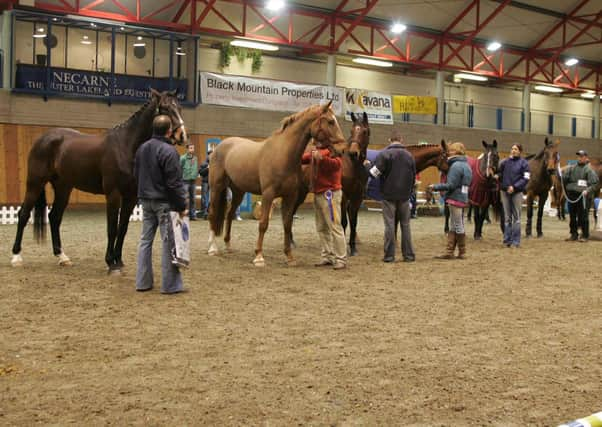Exciting times lie ahead for equine grass sickness research


Recruitment for this post, which will suit an outstanding early research scientist, will begin shortly.
EGS is a devastating disease of horses and research started in the 1920s when the disease was causing the deaths of many working horses on farms.
Advertisement
Advertisement
One hundred years later and the cause(s) remains elusive, but the consensus is that it is likely to be multi-factorial.
There are no treatments or vaccines to prevent disease and around 80% of horses contracting the disease do not survive.
The new research Fellow will be based at Moredun’s International Research Institute and a main objective of the Fellowship will be to set up a national database and sample biobank with the assistance of a UK wide network of vet ambassadors and horse owners.
This will assist greatly in research going forward and will be a crucial resource available to all EGS researchers. An important aspect of the Fellowship will be to investigate novel strands of research using the latest technologies, with the assistance of a support network of senior researchers and fellows.
Advertisement
Advertisement
Dr Beth Wells from Moredun said: “This is a really exciting project bringing together a truly multi-disciplinary team working in collaboration to provide new approaches to this awful disease.
“We are very grateful to TMF and the EGSF for their foresight in funding this post which, as well as taking forward new ideas and research strands, will involve extensive engagement with vets and horse owners to establish the database and biobank.”
Kate Thomson, EGSF said: “The EGS Fellowship marks a step change in the way we approach this enigmatic disease.
“We plan to engage the considerable expertise amongst horse owners and other equine charities as ‘EGS detectives’ in submitting case reports and samples to the biobank.
Advertisement
Advertisement
“We are very grateful to the British Horse Society and World Horse Welfare for helping us produce the EGS Research update which helped pave the way for this project – this can be downloaded at: https://grasssickness.org.uk/wp-content/uploads/2020/07/News-sheet-HORSE-aug20-2_a-w_singles_protected-1.pdf .
Sylvia Ormiston, stud manager at Balmoral Estate, added: “I am so excited to hear of the new angles that the Moredun are approaching EGS research with.
“As a stud manager and pony owner I know only too well of the damage this dreadful disease can do and I am happy to support the research in any way I can.
“Together we will hopefully make some progress to try and beat this baffling disease.”
Advertisement
Advertisement
Professor Elisabeth Innes, Moredun Research Institute said: “This new Fellowship position is part of an exciting programme that Moredun is pioneering to help support excellent early career researchers who wish to develop their careers in furthering the understanding, prevention and control of infectious diseases of animals and we are very excited to be teaming up with EGSF to help shed light on this complex disease.”
Exciting times are indeed ahead for EGS research, by opening up channels and forming an inter-disciplinary, collaborative network, it is hoped to provide answers and solutions to this difficult and devastating disease.
For further information and to get involved please contact [email protected].